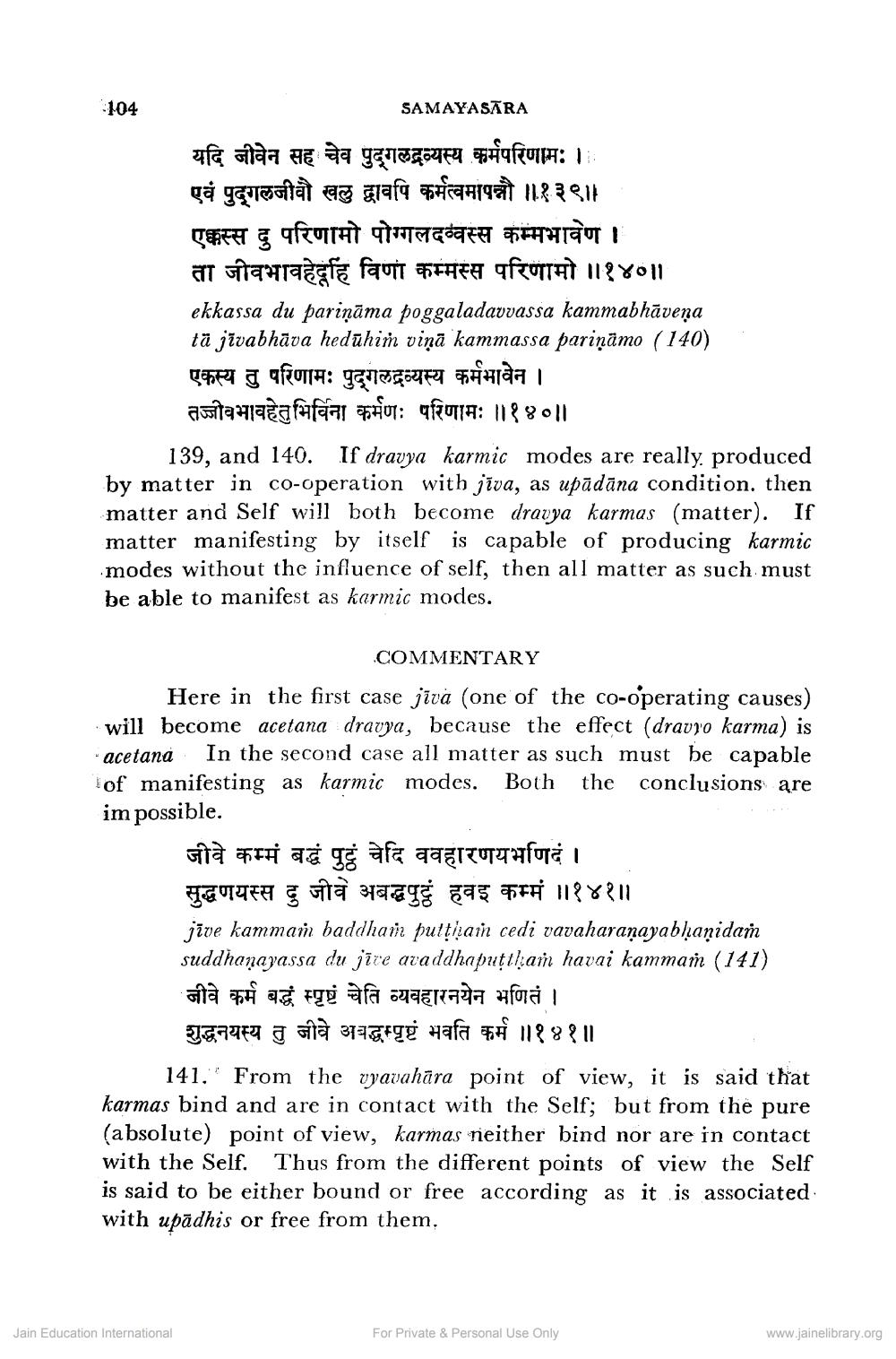________________
-104
SAMAYASĀRA
यदि जीवेन सह चेव पुद्गलद्रव्यस्य कर्मपरिणामः । एवं पुद्गलजीवौ खलु द्वावपि कर्मत्वमापन्नौ ॥१३९।। एक्कस्स दु परिणामो पोग्गलदग्वस्स कम्मभावेण । ता जीवभावहेहि विणा कम्मस्स परिणामो ॥१४०॥ ekkassa du pariņāma poggaladavvassa kammabhāveņa tā jīvabhāva hedūhim viņā kammassa pariņāmo (140) एकस्य तु परिणामः पुद्गलद्रव्यस्य कर्मभावेन ।
तज्जीवभावहेतुभिर्विना कर्मणः परिणामः ॥१४०॥
139, and 140. If dravya karmic modes are really. produced by matter in co-operation with jīva, as upādāna condition, then matter and Self will both become dravya karmas (matter). If matter manifesting by itself is capable of producing karmic modes without the influence of self, then all matter as such must be able to manifest as karmic modes.
COMMENTARY Here in the first case jiva (one of the co-operating causes) will become acetana dravya, because the effect (dravio karma) is · acetana In the second case all matter as such must be capable of manifesting as karmic modes. Both the conclusions are im possible.
जीवे कम्मं बद्धं पुढे चेदि ववहारणयणिदं । सुद्धणयस्स दु जीवे अबद्धपुटुं हवइ कम्मं ॥१४१॥ jāve kammam baddhain puttrain cedi vavaharaṇayabhaạidam suddhanaya.ssa du jire araddha putikain hawai kamman (141) जीवे कर्म बद्धं स्पृष्टं चेति व्यवहारनयेन भणितं । शुद्धनयस्य तु जीवे अबद्धम्पृष्टं भवति कर्म ॥१४१॥
141." From the vyavahāra point of view, it is said that karmas bind and are in contact with the Self; but from the pure (absolute) point of view, karmas neither bind nor are in contact with the Self. Thus from the different points of view the Self is said to be either bound or free according as it is associated with upādhis or free from them,
Jain Education International
For Private & Personal Use Only
www.jainelibrary.org




